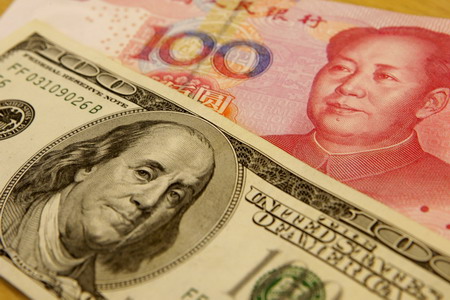
|
BIZCHINA> Top Biz News
 |
|
The million-dollar query
By Wang Xu (China Daily)
Updated: 2009-06-29 08:19  When China's holdings of US Treasuries dipped in April, it was seen as a clear indicator of the nation's uneasy relationship with the world's reserve currency - to sell in the face of a sliding greenback or hold to protect the value of its assets from eroding further.
Indeed, there have been enough pointers about China's concerns over the safety of its $2-trillion foreign exchange reserves, 60 percent of which is thought to be held in dollar-denominated assets. Top officials, including Premier Wen Jiabao, have openly expressed concern about Chinese investment in the US. The country has also actively mooted the idea of a super sovereign reserve currency to replace the dollar. Besides, it has also sought to promote the use of the yuan for foreign trade and investment; a first step, some think, toward challenging the dollar's status as the preferred currency of international trade and capital flow. The April data, however, are insufficient to conclude that China is on the way to dumping its US Treasury notes. In the short run, a rapid disposal of T-bonds is likely to result in price drops, which Chinese foreign exchange reserve managers would do anything to avoid. But, in the long run, a diversification of the nation's reserves now looks unavoidable, and may well be on the cards. Premature sign
According to data released by the US Treasury Department, China bought $10.3 billion of long-term Treasuries in April but sold $14.8 billion worth of short-term Treasuries. That means the nation cut its overall holdings of US Treasuries by $4.5 billion in April, its first since February 2008. China was not alone in doing so. Foreign investors overall sold a combined $44.6 billion of US Treasuries in April, compared to a net increase of $47.3 billion in the previous month. "This matched a shift in the global trend away from US debt purchases," Stephen Green and Jinny Yan, economists at the Standard Chartered Bank, wrote in a research note. Over the past months, there have been increasing concerns that the rising rate of inflation and a depreciation of the US dollar would hurt the value of US Treasury bonds. The US Federal Reserve's decision to buy Treasuries and corporate debt, called 'quantitative easing', was nothing but printing more money. But, as the money supply soars, the rate of inflation spirals as well. "One month's data is not enough for us to change our view that China continues to buy," Green and Yan wrote. They believe the April data was under-estimated partly because purchases by China through London and other financial centers were not represented. "If we see a second month of net sales, then we will have to reconsider this story." (For more biz stories, please visit Industries)
|